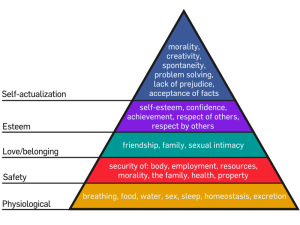I don’t think it’s ever too late to try to get clean and live a sober life. But, I do acknowledge that the longer an addiction progresses, the harder it can be get clean. Plus, once someone does get clean, it takes some time until he or she becomes sober. Still, I think that if someone wants recovery, there’s never a bad time. Better late than never, I believe.
Addiction attacks its targets on all three (3) levels of human life: spiritual, physical, and emotional. Each of those three levels may have underlying layers that may also need attention. For example, the physical level of life contains both the financial and the nutritional layers. I think for many people suffering from an addiction, these two layers can present the biggest obstacles to complete recovery. There are often so may issues on these two (2) levels alone that it can become overwhelming to address either on their own. Someone’s financial health could have been so compromised during the abuse cycle that it can be challenging to even know where to begin.
Also, during an abuse cycle, someone’s nutritional habits get so far out of balance that someone in early recovery may simply not have the physical energy to even begin addressing his or her life’s issues. The reason is that the body needs a balanced amount of protein and carbs and fiber and due to the single-pointed focus on getting and taking a substance, there’s no thought given to food. Many people addicted to substances end up wasting away. So, part of any treatment program must include a nutritional component aimed at rebuilding physical health and strength.
The difficulty with al the layers and complexities within recovery, to me, is that any single layer or level can become so messed up because of an addiction that it’s hard to even get started sometimes. When someone asks me, what do I do first? I answer: Prioritize.
Maslow’s pyramid of needs provides a good way to see what needs to get done first: The image below (taken from Wikipedia) shows the hierarchy:
I think that in addressing the bottom two layers of the pyramid, a person can begin to address the higher levels in the pyramid. But, I don’t see any recovery program as a linear and sequential process. Relapse is a normal part of recovery and part of relapse is returning to habits and behaviors that lead to using. That is, relapse doesn’t happen when someone picks up their substance of abuse. Rather, relapse happens when any one of a person’s needs aren’t addressed.
For example, “Joe” is a recovering alcohol abuser. After a fifteen (15) day detox, he works with a treatment provider to develop a comprehensive program that requires him to eat a balanced diet (no junk food), exercise at least thirty (30) minutes a day, and look for work. Of course, he’s not to use alcohol, but the alcohol isn’t the issue (in my mind it never is). For the first ninety (90) days, Joe is committed to the program and does in fact secure work. He begins to feel good about himself and “treats” himself to a McDonald’s burger meal. I can say with certainty, that the instant Joe puts the burger in his mouth, he begins his path towards relapse. From that burger, using alcohol is only a matter of time. But Joe will pick up a drink because his junk food habit was part of his lack of self-care and by making the burger “ok,” Joe indicated that, while he’s clean, he isn’t yet sober.
It’s never easy to get clean and sober. There’s a lot to attend to in recovery. But’s it never too late nor is there ever no hope. So, if someone wants to begin his or her recovery, I suggest he or she tries eating a healthy meal once in a while. It’s a small step, but it can be a stepping-stone.

